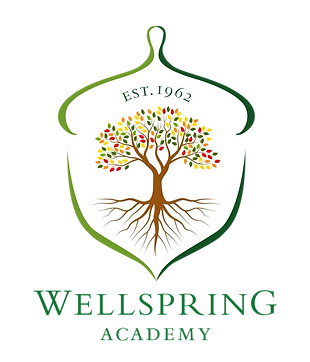Children's Nutrition Tips–Brain Foods for Kids to Boost Cognitive Development
- Chef Joe

- Apr 3, 2024
- 3 min read
Updated: Aug 5, 2024
As parents, we're constantly seeking ways to support our children's growth and development, and one of the most powerful tools we have at our disposal is nutrition. Just as we fuel our bodies with wholesome foods to stay healthy, the right nutrients can also enhance cognitive function and support brain health in children. Chef Joe, the Fractal Education Group Executive Chef, dives into the connection between nutrition and chi. Let's explore the fascinating connection between nutrition and cognitive development. Here are some practical tips for children's nutrition!
The Link Between Nutrition and Cognitive Function
The brain is a complex organ that requires a steady supply of nutrients to function. Research has shown that certain nutrients play key roles in cognitive development, memory, focus, and overall brain health. Providing our children with a healthy diet rich in essential nutrients can help support their cognitive development and set the stage for lifelong learning and success.
Omega-3 Fatty Acids
Omega-3 fatty acids, particularly EPA (eicosapentaenoic acid) and DHA (docosahexaenoic acid), are essential fats that play a critical role in brain development and function. These fatty acids are abundant in fatty fish such as salmon, mackerel, and sardines. They're also found in walnuts, flaxseeds, and chia seeds. Including these foods in your child's diet can help support memory, concentration, and overall cognitive function.
Antioxidants
Antioxidants help protect the brain from oxidative stress and inflammation, which can damage brain cells and impair brain function. Fruits and vegetables are excellent sources of antioxidants, particularly those rich in vitamins C and E. Berries, citrus fruits, leafy greens, and colorful vegetables like bell peppers and tomatoes are all great choices to incorporate into your child's diet.
Vitamins and Minerals
Certain vitamins and minerals are vital for brain health and function. Vitamin B12, found in foods like eggs, dairy products, and fortified cereals, is essential for nerve function and the production of neurotransmitters. Iron, found in lean meats, beans, and fortified grains, is crucial for oxygen transport to the brain. And zinc, found in nuts, seeds, and whole grains, plays a role in memory and learning. Ensuring your child consumes various nutrient-rich foods will help provide the vitamins and minerals necessary for optimal brain function.
Practical Tips for Including Brain Foods in Your Child's Diet
Incorporate fish into meals: Aim to include fatty fish in your child's diet at least twice a week. Grilled salmon, tuna sandwiches, or baked fish sticks can be tasty options that appeal to kids.
Make fruits and vegetables fun: Get creative with how you serve fruits and vegetables to make them more appealing to children. Try cutting them into fun shapes, serving them with a yogurt dip, or blending them into smoothies.
Snack smart: Replace sugary snacks with nutrient-rich alternatives like trail mix with nuts and dried fruits, whole grain crackers with cheese, or sliced vegetables with hummus.
Lead by example: Children learn by example, so be sure to model healthy eating habits yourself. Sit down to meals as a family and enjoy a variety of nutritious foods together.
In conclusion, nourishing your child's brain with nutrient-dense foods is a powerful way to support their cognitive development and overall well-being. By incorporating omega-3 fatty acids, antioxidants, vitamins, and minerals into their diet through various wholesome foods, you can help give them the foundation they need to thrive academically, socially, and emotionally.






Kabar4d selalu kasih hadiah menarik buat member.